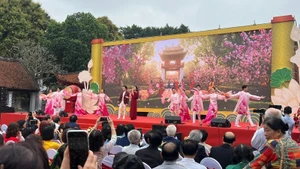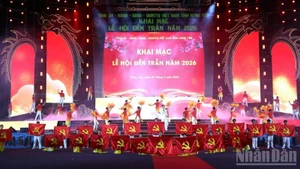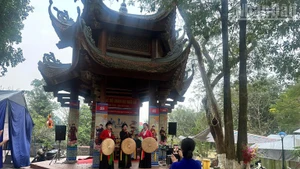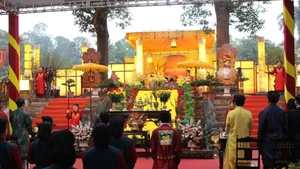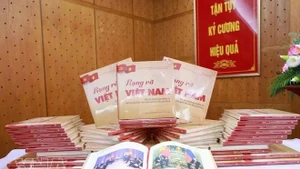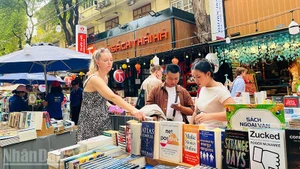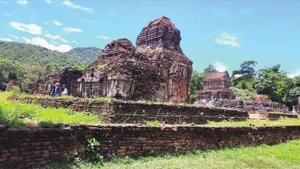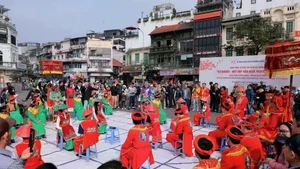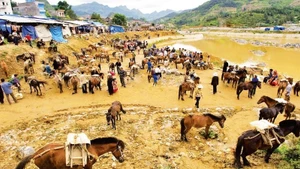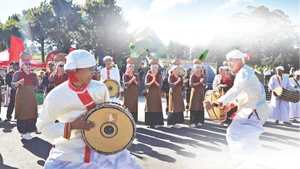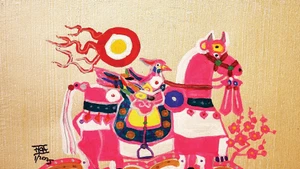Speaking at the opening ceremony, Ta Quang Dong, Deputy Minister of Culture, Sports and Tourism, stressed that Tuong (Classical drama) and folk opera are traditional art forms carrying distinctive values of the Vietnamese culture. However, amid the rapid changes of modern society, traditional arts are facing numerous difficulties: shrinking performance markets, dispersed audiences, a shortage of young human resources, and a decreasing number of veteran artists; training and professional transmission remain limited; and it is becoming increasingly challenging to attract young audiences. These issues require stronger and more coordinated efforts from management agencies, art units, and the artists themselves.
According to the Deputy Minister, this year’s festival is an opportunity to take a deeper look at the current situation of creation, staging, and performance; assess the capacity of artists; examine how well traditional theatre adapts to contemporary life; and recognise ongoing efforts to compose. These results will be an important basis for making policies to support traditional performing arts.
Deputy Minister Ta Quang Dong emphasised that preserving traditional arts does not mean keeping them unchanged, but placing them within a process of adaptation, development, and value dissemination. The Strategy for the Development of Vietnamese Culture to 2030 clearly sets priority tasks: preserving traditional arts, developing human resources, and renewing financial mechanisms, especially in ordering and supporting artistic works.

“The ministry will continue to consider Tuong and folk opera as priority fields. In the coming time, the ministry will perfect financial mechanisms; renew the means of ordering works; increase investment in training young artists; and support professional transmission programmes in a more specialised and systematic way,” he said.
The Ministry of Culture, Sports and Tourism also requested departments to instruct art units to proactively innovate their production organisation; boldly create creativity in staging; preserve artistic identity; expand performance spaces; strengthen connections with schools and communities; and pay special attention to training the next generation of artists.
The deputy minister also requested the Performing Arts Department to continue studying and advising on improving mechanisms and policies for traditional arts so that artists, even under difficult conditions, can maintain passion and responsibility for their profession. The sustained dedication of artists is the most important foundation for preserving and promoting national artistic values.
The National Tuong and Folk Opera Festival 2025 has attracted the participation of nearly 1,000 artists and performers from 10 art units nationwide, presenting 14 plays that deeply reflect social life, honour the history, homeland, and the people of Viet Nam, and praise moral and humanitarian values and aspirations to rise.
Serving as the jury are highly respected and experienced artists: People’s Artist Le Tien Tho; People’s Artist Pham Thi Kim Oanh (Kieu Oanh); People’s Artist Trinh Thi Hong Luu; People’s Artist Nguyen Dat Tang; and People’s Artist Nguyen Ngoc Khanh.
Immediately after the opening ceremony, the Tuong play “Lua chay Phien Ngung” was performed by artists of the Viet Nam National Traditional Stage Theatre to kick off the festival.
The remaining performances will take place from now until November 24 at Dai Nam Theatre, Ha Noi. The closing ceremony and awards presentation will be held on the evening of November 26.
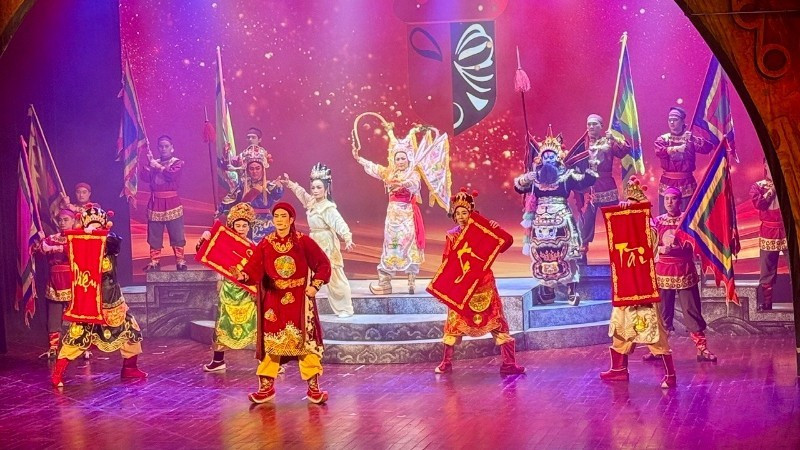
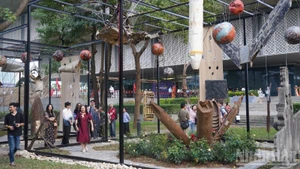
![[In Pictures] Procession of giant “Lord Pigs” weighing over 200kg at La Phu Village Festival](https://en-cdn.nhandan.vn/images/9f233ae74386156ace55673ec5a8ea373e7bb5df2274800bfd51bda6ec86d946ac1c392948518c6b0493c4028e062086d61e162f1bde5f06b033cfb48e75970298e3f24f2e8ecbfa7996f109382f9907/ruoc-lon-la-phu-11-4212.jpg.webp)
